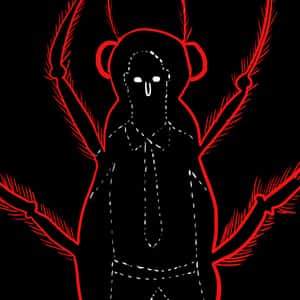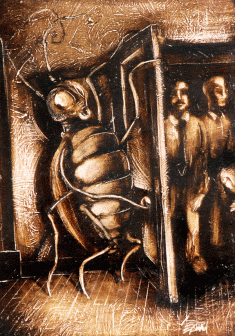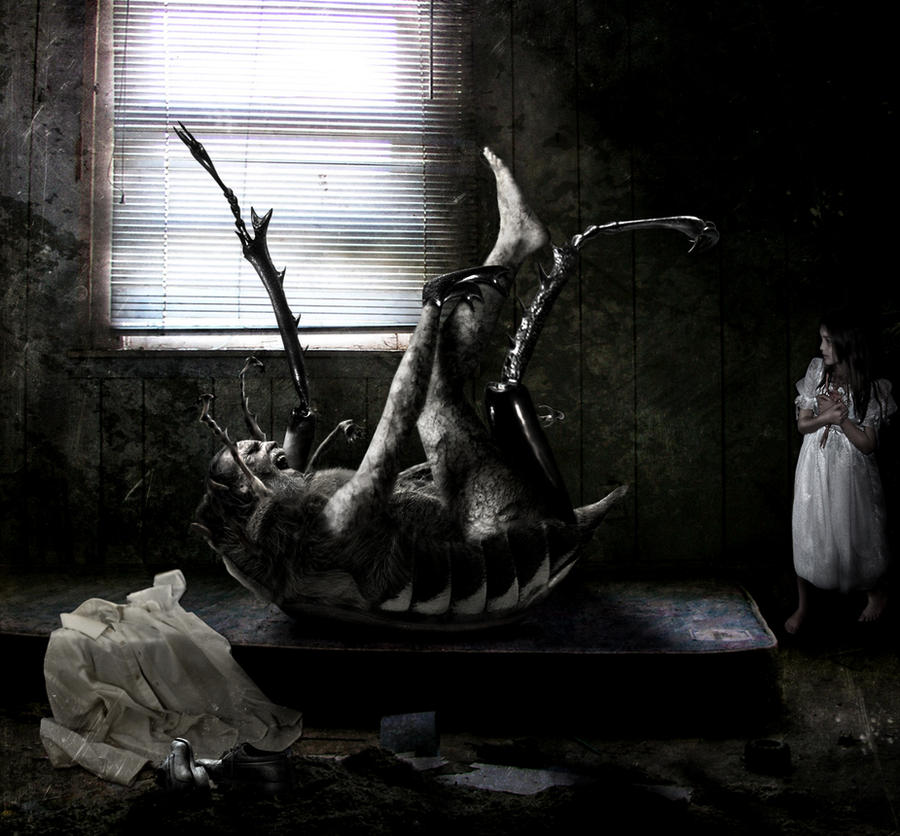Gregor Samsa is a selfless person with no one to
love and no one to truly love him back. He is a traveling salesman who lives
mainly on the road, going from place to place, never living in one place to
make friends or be close to family all the time. Whenever he is home however,
he is never looked out for or noticed in a cared-for way. When the story
starts, he wakes up as a giant, nasty bug and doesn't know how or why, but it's
really reality. He can't open the door right away when his family and manager
call for him at his bed room door, so they do become worried. "But at
least people now thought that things were not completely all right with him and
were prepared to help him" (Kafka 6). Gregor is realizing that maybe his
family does care for him on some level, because they don't leave him alone when
he never opens the door for them. Instead they worryingly try to call for him,
and ask if he's okay, and go to get the door open with a locksmith. From the
text, it doesn't seem that they are mad at Gregor for not opening his door, nor
careless, but curious and in worrisome. Gregor gets somewhat of a rush of
pleasure from being the one getting the attention, and simply being cared about
in a direct way. "He felt himself included once again in the circle of humanity..."
(Kafka 6). Gregor expresses his feelings of feeling important, and the one his
manager and family are paying attention to, and trying to free him from his
'locked' room. He expresses it in the manor of being a part of the human
connection again, showing how incredibly lonely and sad he is that he doesn't
feel like a human being anymore. In the irony of that, he is in fact not a
human being anymore physically, but literally a giant insect. From this scene,
when his family and manager are trying to figure out if he's alright and how to
get the door open since he cannot, Gregor feels loved in the way every person
should feel, especially from their own family, but also from other people they
know and/or love. This moment, before he opens the door and reveals his
insect-self to everyone, he feels a slight happiness, in which he rarely feels
most of the time.
When
Gregor wakes up that morning and sees himself as an insect, he doesn't seem to
care or fear it, but only notice it, and then complain about other things that
a normal still-a-human person would on a daily basis. The idea of realizing you
are a giant bug when you wake up from sleep sounds horrifying and very
concerning and surreal. Gregor doesn't react the way one would think, and it
shows his sadness in how he doesn't fear his new self. "Gregor’s glance
then turned to the window. The dreary weather—the rain drops were falling
audibly down on the metal window ledge—made him quite melancholy. 'Why don’t I
keep sleeping for a little while longer and forget all this foolishness,' he
thought" (Kafka 1). His emotion is little and quite calm for such a crazy
change of himself. After he has examined himself as a nasty bug, he looks out
the window to see the melancholy weather, gray color and rain, which only
reminds himself of his sadness. It shows that his life has such a sadness, that
he isn't more saddened by the fact he's turned into a giant bug. He instead
thinks reality will go away after he sleeps a little more, knowing he was awake
since he just woke up from his 'anxious dreams'. The sadness derives completely
from his loneliness, form no love to receive, and much potential love to give.
When he wakes up, analyzing his body and the weather, he looks at his picture
on the wall. "... hung the picture which he had cut out of
an illustrated magazine a little while ago and set in a pretty gilt frame. It
was a picture of a woman with a fur hat and a fur boa" (Kafka 1). This
picture is a random women from a magazine who he has no personal relationship
with whatsoever, as she's a stranger. To cut out a picture and hang it with a
tack, or get a poster of a random woman is something for show or fun, but to
cut out a stranger and put the picture in a frame is different. Framing
pictures shows a care for its expense and art, or because the picture is
personal; family, friends, or other loved ones. The fact the Gregor frames a
woman he doesn't know shows the love he is willing to give and have, but to
something unlovable. He is clearly lonely, and enough to not frame his own
family, but someone he wishes to know, or even just another human. His sadness
and loneliness are one, and his emotions, actions, and his bed room show this
in a thought through, intricate way.




No comments:
Post a Comment